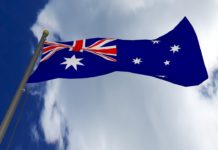Entain’s revenue in 2020 was almost exactly flat at £3.63bn, as online growth largely cancelled out retail declines in a year that saw the operator change name and chief executive.
 Entain’s online operations brought in £2.75bn in net gaming revenue, up 27.2%, on wagers worth £11.78bn, up 5.1%. After paying £66.9m in sales taxes, its revenue from this segment was £2.68bn.
Entain’s online operations brought in £2.75bn in net gaming revenue, up 27.2%, on wagers worth £11.78bn, up 5.1%. After paying £66.9m in sales taxes, its revenue from this segment was £2.68bn.
Of this revenue, sports made up £1.20bn, up 24.4%, while gaming revenue grew 28.9% to £1.53bn and business-to-business (B2B) revenue was up 5.3% to £15.9m.
The operator added that this growth reflected more than just the effect of retail closures pushing players online.
“While online net gaming revenue growth has clearly benefitted from retail closures during the year, we have also seen market share gains in all of our key territories,” Entain said.
Much of this online revenue came from the UK, where online revenue was up 27% year-on-year thanks mostly to the success of Entain’s UK gaming brands, which saw revenue grow 40%.
In Germany, meanwhile, online revenue was affected by strict restrictions on online gaming as the country implemented a transition period ahead of the Fourth State Treaty on Gambling coming into effect. While net gaming revenue was up 12% for the first nine months of the year, it was up only 3% for the year as a whole.
“Notwithstanding those changes, Germany remains a relevant market for the group and we continue to invest in the bwin brand as evidenced by the launch of the bwin.de mobile sports app,” Entain said.
Australia saw especially strong online revenue growth, of 55%, as did Italy with 53% and Brazil with 56%.
The operator’s Ladbrokes and Coral UK retail shops were hit hard by the effects of lockdown in the country. These shops saw revenue fall 39.7% to £678.6m as stakes fell by 42.1% to £1.84bn.
Within this segment, sports betting revenue was down 37.0% to £355.0m, while revenue from machines – which was also affected by the £2 limit on fixed-odds betting terminal (FOBT) stakes – was down 42.3% to £323.6m.
“Despite spending large periods of the year with our doors closed, trading has been promising whilst the estate has been open,” Entain said.
The operator noted that before 15 March, net gaming revenue was down just 5%, with most lost spending on FOBTs being channeled into sports betting instead.
Entain’s retail operations in the rest of Europe brought in £178.5m, down 38.5%, as wagers fell 44.0% to £925.5m. Sports betting revenue at these shops was down 36.0% to £138.8m, machine revenue declined 9.1% to £2.1m and other revenue dropped 46.2% to £37.6m.
Entain’s other segments brought in £27.8m. This included revenue from Telebet, Betdaq and greyhound stadia.
After costs of sales totalling £1.25bn, up 3.5%, Entain’s gross profit was £2.31bn, down 2.5%.
The operator then paid operating costs of £1.89bn, leaving a contribution of £1.74bn, 7.2% less than in 2019. Non-marketing administration costs came to £1.32bn, which meant the business made £419.1m in profit before joint ventures and associates, compared to a $156.9m loss the year before.
On these joint ventures and associates, which include the US-facing joint venture BetMGM, Entain made a £60.2m loss.
After net financial losses of £79.5m, a loss of £61.8m on financial instruments and £42.9m in foreign exchange losses, Entain’s pre-tax profit was £174.7m. In 2019, it had made a pre-tax loss of £164.4m.
The operator paid £60.9m in income tax, resulting in a £79.4m profit, compared to a £140.7m loss the year before.
Entain chief executive Jette Nygaard-Anderson, who took over from Shay Segev in January, said the results showed the benefit of Entain’s diversification in channels, brands and territories.
“Today’s results demonstrate the extraordinary resilience and professionalism of our people, as well as the importance of having a truly diversified business model that is not overly reliant on any one product, brand, territory, or channel,” Nygaard-Andersen said.
While Entain did not break down its fourth-quarter results specifically, it noted that its online operations experienced a 20th consecutive quarter of double-digit net gaming revenue growth.
After the year ended, Entain both faced interest as an acquisition target and looked to pursue acquisitions of its own. Land-based operator MGM Resorts made an $11bn (£8.08bn/€9.06bn) offer for the operator. However, after Entain’s board said that bid “significantly undervalues” the business, MGM declined to submit another.
Meanwhile, Entain made an offer to acquire Baltic-facing Optibet operator Enlabs for £250m. While this offer gained approval from the Enlabs board, some shareholders argued it was too low, prompting Entain to up the bid to £314.6m. Shareholders representing the majority of Enlabs have now backed the improved offer.
Entain is also one of a number of businesses that have sought to acquire Tabcorp’s sports and media operations.
Harry Barnick, senior analyst for leisure sector companies at Third Bridge, said that after talks with MGM ended, Entain is looking to prove it can lead its future independently.
“Entain is betting on its ability to lead its own future independent of a large US casino operator,” Barnick said.
“Jette Nygaard-Andersen has the complex job of navigating an increasingly regulated domestic market, whilst simultaneously juggling expansion in the US and acquisitions to fuel growth.”
Regulus Partners, meanwhile, said that this balance will define the operator’s future.
“Few businesses have managed organic growth and continued bolt-on M&A while also handling CEO disruption with such aplomb,” it said. “The question now is whether Entain is able to sell into US strength with its options strategically tied to MGM, becomes big enough to buy its way into US independence, or faces a series of regulatory and expectations ‘corrections’ that re-write the playbook again.”












